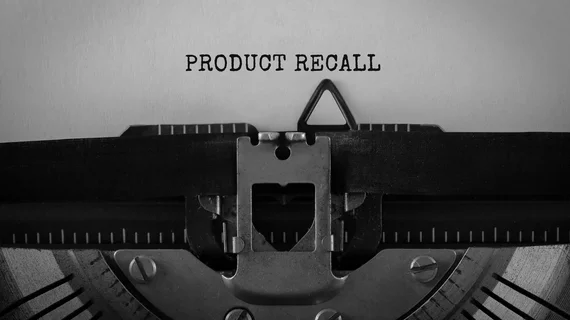FDA warns healthcare providers about recalled CPB, ECMO devices
The U.S. Food and Drug Administration (FDA) has published a new letter highlighting a voluntary recall of certain Getinge/Maquet medical devices used during cardiopulmonary bypass (CPB) and extracorporeal membrane oxygenation (ECMO) procedures. The letter is designed to “help ensure that healthcare providers and facilities are aware of the manufacturer's recall notice and have information about alternative devices.”
Back in May, Getinge/Maquet issued an Urgent Medical Device Removal notice warning customers not to use Quadrox oxygenators or certain Getinge/Maquet venous hardshell cardiotomy reservoirs. The oxygenators are used to provide physiological gas exchange for up to six hours during CPB procedures or more than six hours during ECMO procedures. The cardiotomy reservoirs are used to collect, store and filter a patient’s blood in extracorporeal circulation during CPB procedures for up to six hours.
The recall was put into place due to a risk of “potentially compromised packaging sterility that may result in the risk of infection/harm to the patient.” While some device accessories were improperly packaged, others were placed in packaging that “may exhibit holes, cracks, dents and crushed areas.” So far, these issues have not been linked to any patient deaths or adverse events.
All devices included in the alert were manufactured from April 2020 to December 2022 and distributed from September 2020 to March 2023. The FDA urged all healthcare providers to check their inventory for these devices. If any unused devices are identified, they should be removed so that they are not accidentally used.
“We apologize for any inconvenience this recall may cause,” Getinge/Maquet said in its notice.
The FDA and Getinge/Maquet are working together to monitor for any issues potentially related to this recall. In addition, FDA said it would “continue to keep healthcare providers and the public informed” in the case of any additional updates.
Click here for more information from the FDA and here for more information from the vendor. As always, healthcare providers can submit reports through the FDA’s MedWatch program.

